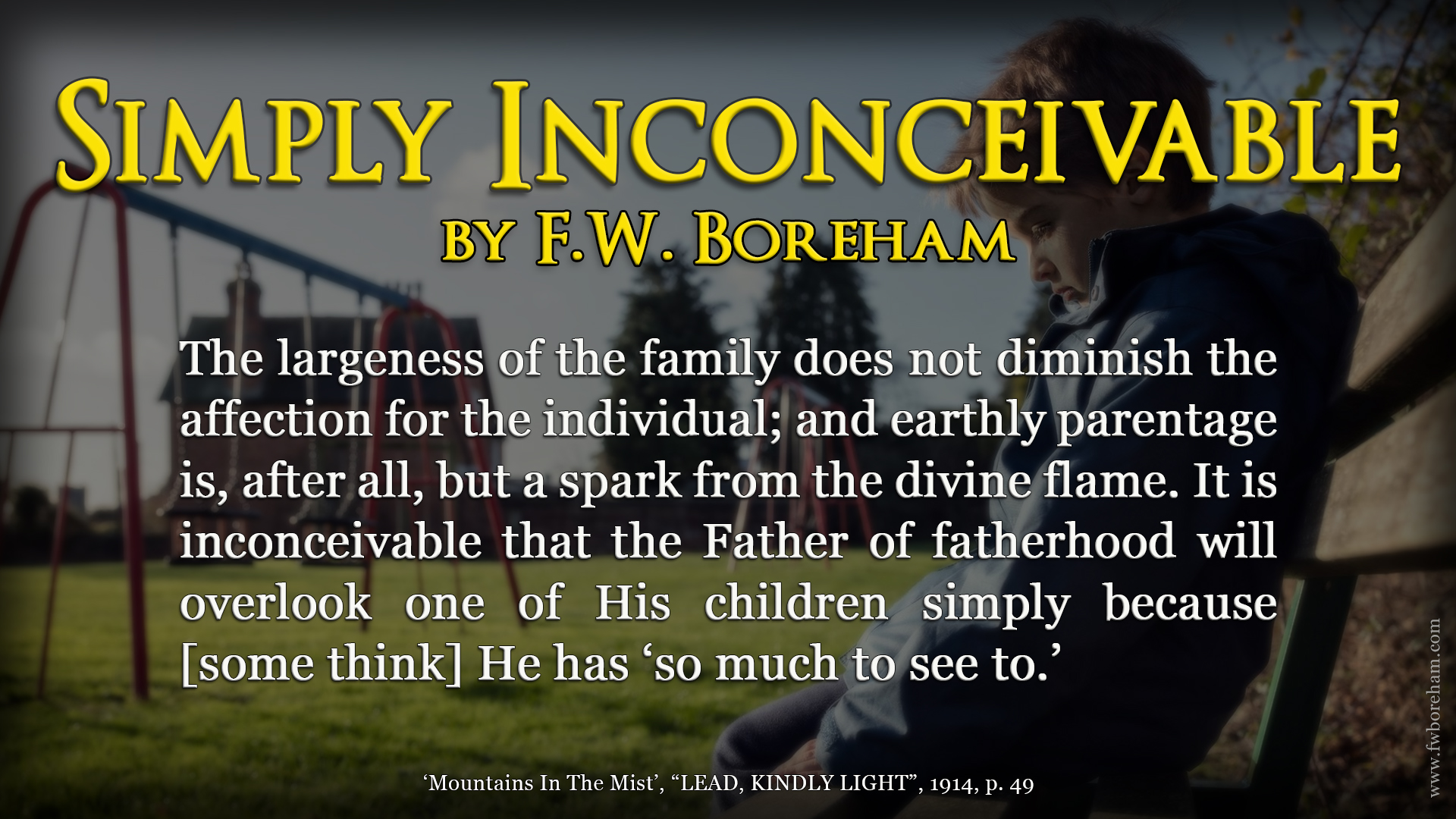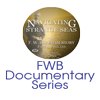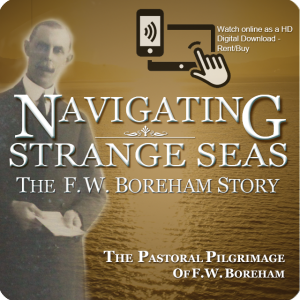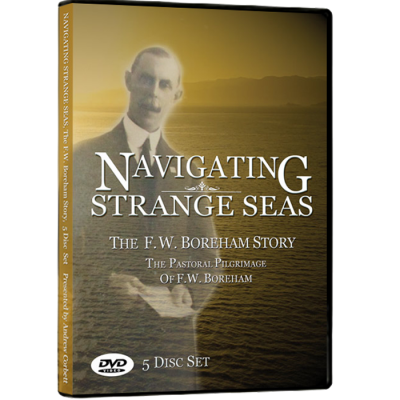V
LEAD, KINDLY LIGHT
At two most crucial points Christianity fearlessly challenges experiment, and bravely dares a test. The first is in the matter of Prayer. The second is in the matter of Guidance. If it can be proved that the great Father ever allows any of His children to cry to Him in vain, or if it can be shown that He leaves any of them to stumble home in the dark as best they can, then Christianity has broken down. It stands exposed and exploded. But can it? There is no cause for alarm. In The Luggage of Life I have tried to show that even in our dear earthly homes, however crowded with cots they may become, each child finds a place of his own, and his voice is loved and listened to. The largeness of the family does not diminish the affection for the individual; and earthly parentage is, after all, but a spark from the divine flame. It is inconceivable that the Father of fatherhood will overlook one of His children simply because He has ‘so much to see to.’ It is our Lord’s own tender and beautiful argument: ‘If ye then, being evil . . . how much more shall your heavenly Father?’ Could anything be more satisfying or convincing?
But to come to the second matter. We have all known the torture of indecision. To buy or not to buy? To accept or to decline? To go or to stay? To turn this way or that? It is dreadful I know, the question is: Are we justified, in our seasons of perplexity, in expecting to hear a guiding voice, or to discern a shining light, or to see a beckoning hand? Must we plunge into the gloom, or may we follow the gleam? Is there a Kindly Light that leads? If we reply in the negative, a hundred exceeding great and precious promises become instantly unintelligible, and, in consequence, all Scripture falls under suspicion of being disingenuous and insincere. And yet, on the other hand, it is so difficult, in our distraction, to hear that voice, to discern that light, to see that beckoning hand.
Think of that memorable day in the life of Goethe. ‘A delicious sadness subdued his thoughts,’ his biographer tells us, ‘as he wandered dreamily along the banks of the Lahn. The lovely scenes which met his eye solicited his pencil, awakening once more the ineffectual desire, which from time to time haunted him, of becoming a painter. The desire, often suppressed, now rose up in such serious shape that he resolved to settle for ever whether he should devote himself to art or not. The test was curious. The river glided beneath, now flashing in the sun-light, now partially concealed by willows. Taking a knife from his pocket, he flung it with his left hand into the river, having previously resolved that, if he saw it fall, he was to become an artist; but if the sinking knife was concealed by the willows, he was to abandon the idea. No ancient oracle was ever more ambiguous than the answer now given him. The willows concealed the sinking knife ; but the water splashed up like a fountain, and was distinctly visible. So indefinite an answer left him still in doubt,’ It is thus that our wayward will-o’-the-wisps torment us. There must be a more excellent way. There is! I hazard three suggestions.
I
The Kindly Light must be treated very patienuy. May I draw upon my memory? Just after I settled in my New Zealand manse it was my great privilege to entertain one of the most gifted, most experienced, and most gracious of our ministers. I felt it to be a priceless opportunity, and I sought his counsel concerning all my early ministerial difficulties. One lovely morning we were sitting together on the verandah, looking away across the golden plains to the purple and sunlit mountains, when I broached to him this very question. ‘Can a man be quite sure,’ I asked, ‘that, in the hour of perplexity, he will be rightly led? Can he feel secure against a false step?’ I shall never forget his reply. He sprang from his deck chair and came earnestly towards me. ‘I am certain of it,’ he exclaimed, ‘if he will but give God time! Remember that as long as you live,’ he added entreatingly — ‘Give God Time!’
More than ten years later I found myself face to face with a crisis. I had to make a decision on which my whole life’s work depended, and I had to make the decision by five o’clock — the hour at which the telegraph office closed— on a certain Saturday evening. It chanced once more that a minister was my guest. But he could not help me. He thought it vastly improbable that God could concern Himself about individual trivialities. ‘The Lord has so much to see to . . . such a lot of beds in the ward!’ He was inclined to think that a certain element of chance dominated our mortality, that a man was bound to take certain risks, and that life was very much like a lottery. ‘And if a man make a mistake at a critical juncture like this?’ I asked anxiously. He shrugged his shoulders.
‘And after that the dark.’ I remember with a shudder how my faith winced and staggered under that blow. But I thought of the sunny morning on the verandah ten years before, and clutched desperately and wildly at my old faith. Saturday came. I positively had not the ghost of a notion as to what I ought to do. At five minutes to five I was at the telegraph office, still in hopeless confusion. At three minutes to five a man rode up on a bicycle. So far as I knew, he was absolutely ignorant of the crisis through which I was floundering. But he told me something that relieved the entire situation, and made my course as clear as noonday, and by five o’clock the message had been dispatched.
Dr. Jowett, of New York, says that he was once in the most pitiful perplexity, and consulted Dr. Berry, of Wolverhampton. ‘What would you do if you were in my place?’ he entreated. ‘I don’t know, Jowett, I am not there, and you are not there yet! When have you to act?’ ‘On Friday,’ Dr. Jowett replied. ‘Then,’ answered Berry, ‘you will find your way perfectly clear on Friday! The Lord will not fail you!’ And, surely enough, on Friday all was plain.
One of the very greatest and wisest of all Queen Victoria’s diplomatists has left it on record that it became an inveterate habit of his mind never to allow any opinion on any subject to crystallize until it became necessary to arrive at a practical decision. Give God time, and even when the knife flashes in air the ram will be seen caught in the thicket! Give God time, and even when Pharaoh’s host is on Israel’s heels a path through the waters will suddenly open! Give God time, and when the bed of the brook is dry Elijah shall hear the guiding voice! Yes, the Kindly Light must be treated very patiently.
II
And very obediently! This has never been better put than in Robinson Crusoe, the story of whose experiences is one of the finest religious classics in our literature. We all recall the agony of consternation into which he was thrown on discovering that he was not alone on his island. The presence of savages changed the outlook completely, and he knew not which way to turn. In his confusion he- sought the divine guidance, and in language that has never been excelled by Quaker or by mystic he tells at length of those secret hints given to his spirit, directing him, in opposition to his inclinations, to go this way or that way, by means of which his life was preserved from a thousand perils. To his instant and unquestioning response to these ‘secret hints and pressings of mind’ he attributed everything. The whole passage is worthy of a careful reperusal. It is a gem.
From Robinson Crusoe to Paul is not so far a cry as it seems. There is nothing in the New Testament more dramatic than the great missionary’s silent journey across Asia. He set his face towards the evangelization of the stately commercial capitals of the Eastern world. But in each place he was ‘forbidden of the Holy Ghost to preach the Word,’ and trudged on in stillness. ‘The Spirit suffered him not,’ as the Quakers would say, ‘there was a stop in his mind against it.’
I hear a voice you cannot hear,
Which says I must not stay;
I see a hand you cannot see,
Which beckons me away.
And the result of Paul’s implicit obedience to that mysterious inward restraint was — Europe! It shifted the balance of power, and altered the face of the world. As Benjamin Kidd has demonstrated, the great western empires sprang out of that extraordinary silence, that mystical submission. It is ever so. Carey planned to evangelize the South Seas. The inward monitor said India! Livingstone selected China. The voice said Africa I And who that realizes what Europe has meant to the world, what Carey has meant to India, and what Livingstone has meant to Africa, shall doubt the wisdom of unquestioning compliance with that secret dictate? Yes, the Kindly Light must be treated very obediently.
III
And very gratefully! For, however difficult it may be to see the gleam leading on through the gloom, it is never difficult, on looking back, to see that we have been led. A brilliant essayist has said that ‘John Wesley was being trained for his mission long before he appeared on this planet. The High Churchmanship of his father, the Puritan strain in his wonderful mother—were not these master-elements in the forming of his soul?’ So early the Kindly Light was leading! With almost wearisome monotony biographers point out to us the wonderful way in which each separate phase of life peculiarly fits a man for the next. To take a single illustration, which is typical of scores, and which I select only because of its conciseness, Sir Alfred Lyall, in his Life of Lord Dufferin, remarks: ‘The appointments which he had previously held had been of such a kind that if they had been purposely undertaken as a course of preparatory training for the Indian Viceroyalty, a more appropriate selection could hardly have been made!’ Similar instances might easily be multiplied. Sir W. Robertson Nicoll affirms that very few old men look back with regret upon the decisions that they made at the crises of their careers. ‘The meaning of that is,’ he adds significantly, ‘that we are not left so much to our own wisdom as we think. All unconsciously to ourselves we have been guided.’ The Kindly Light must be treated very gratefully.
‘Up over my table,’ writes that most fascinating personage the ‘Lady of the Decoration,’ ‘I have a little picture that you sent me, matey, of the “lane that turned at last.” You always said my lane would turn, and it has — into a broad road, bordered by cherry blossoms and wistaria.’ We have most of us found, somewhere in life, just such an avenue of glorious blossom and delicious fragrance. And as we stroll amidst the loveliness of its petals and the luxury of its perfume, it will do us a world of good to bow our heads and to adore with thankful hearts the Kindly Light that led.
F.W. Boreham





Yesterday, I started watching a video about how to build a business that works by Brian Tracy, and in one of the main points he stated: in matters of great importance we should think slow and delay the decision as much as possible for it is at this time that we get in trouble for not giving God time!